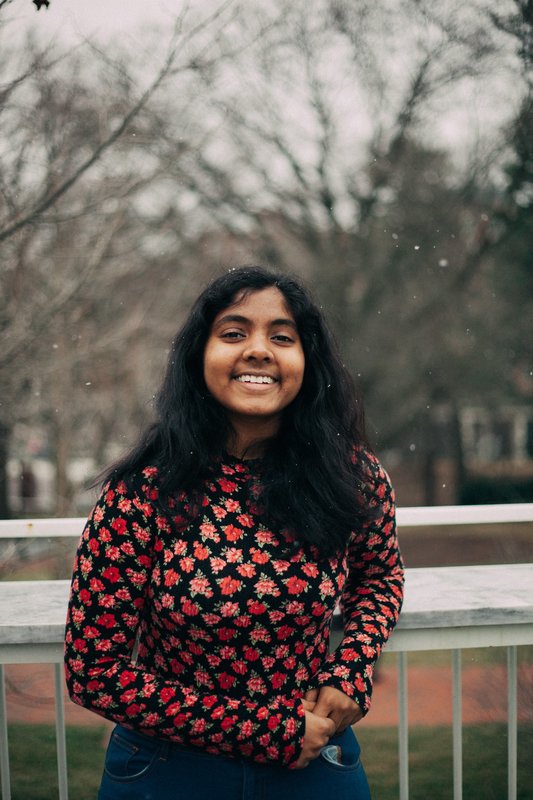Indu Radhakrishnan
How much emphasis do you think you would place on imparting Indian culture to your children?
“That's something I've been thinking a lot about lately. Not about having kids, not yet - but how do I conserve something that I feel like I don't really have that much knowledge about? I would love to be able to pass on things like the language. But then there's the problem that I don't speak it that well even though I can understand it fluently. So I would love to impart a great deal of that culture. Especially the food and the language and the music. That's super. I feel like those things are the kinds of things that shape a lot of who you are and the things that you love and are interested in. But I also don't know if I have that capacity, which is really terrifying.
I went back to India recently. It was like the first time in 14 years I went back, and after going back it was like, ‘Wow, I do love this culture and this is a part of who I am.’ I want to be able to pass that on. I want to be able to bring my kids back there at some point. So yeah, it’s definitely a matter of making the effort, I think. I have a very close relationship with my parents, but of late I've been making more of an effort to build more of a cultural competency with them, you know. You know, if my mom is cooking in the kitchen, just looking over her shoulder and seeing what she's doing. I'm trying some of those things myself, even just going online, listening to more music of the Malayalam variety or watching more movies. Just trying to give myself a little context because I would really hate for me to be where the stopping point is for the culture. I want to continue it.”
Are there any common misconceptions people have about you because of your status as an immigrant?
“I think the big thing is that people make assumptions about my relationship with my culture. People either think I'm like this representative of my culture or they're just really surprised when they find out how American I am, but to me it's like I've spent all of a year and two weeks in India and I spent pretty much my entire adult life in America. So of course I'm going to be American. In a lot of ways I identify with aspects of cultures that are not my own. And I identify more strongly with being an immigrant than I do necessarily with being Indian, because I don't feel like I have that cultural competency with Indian culture to be like, ‘I'm an Indian person.’ I think the assumption with a lot of immigrants is that you are like a representative of whatever country your parents came from. And you're usually not, especially if you've lived most of your life in the States, unless your parents are really into the hyper-culturalization - most parents want their kids to be able to adjust well to society. You end up being pigeonholed as the Indian person.”
